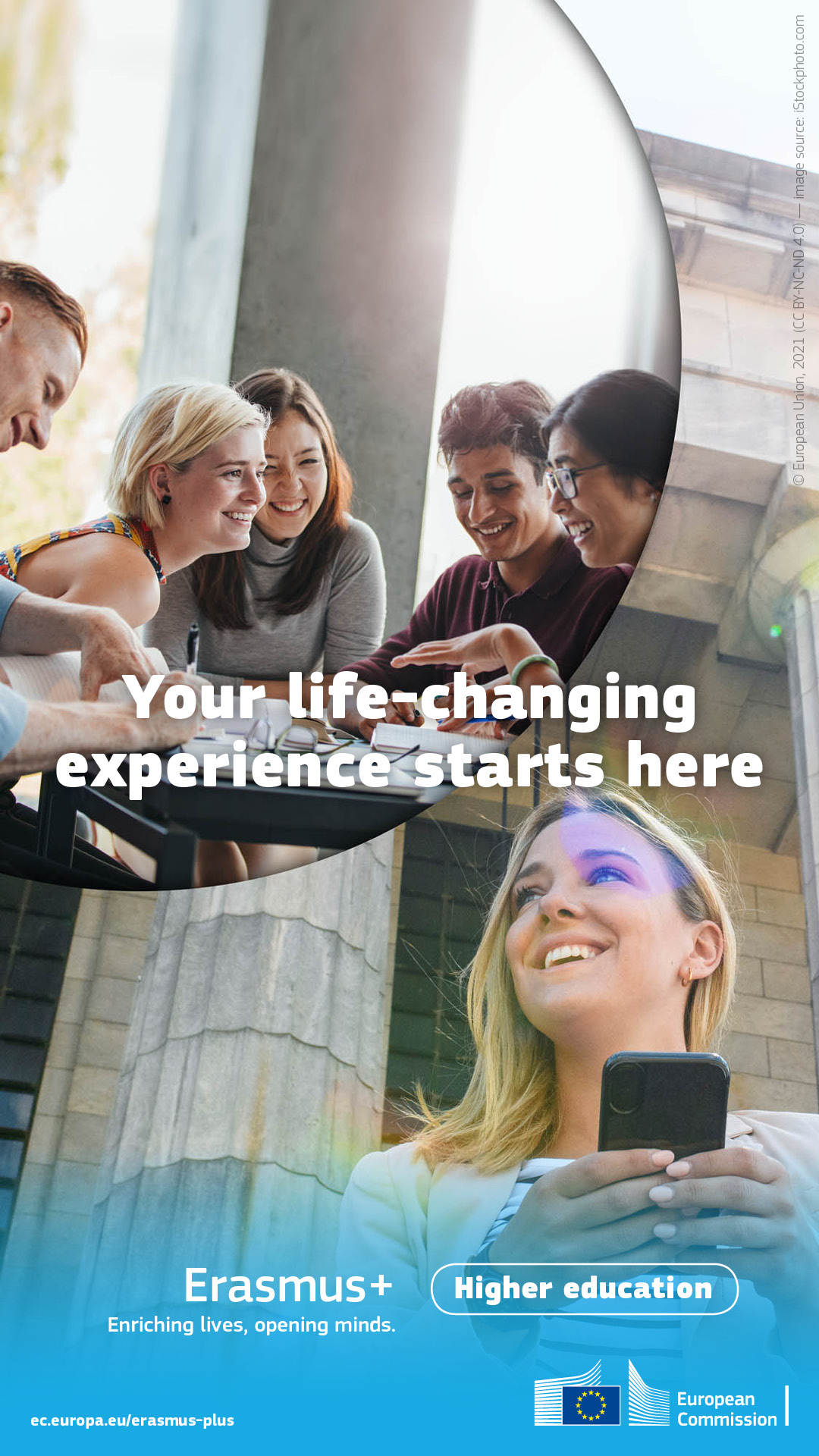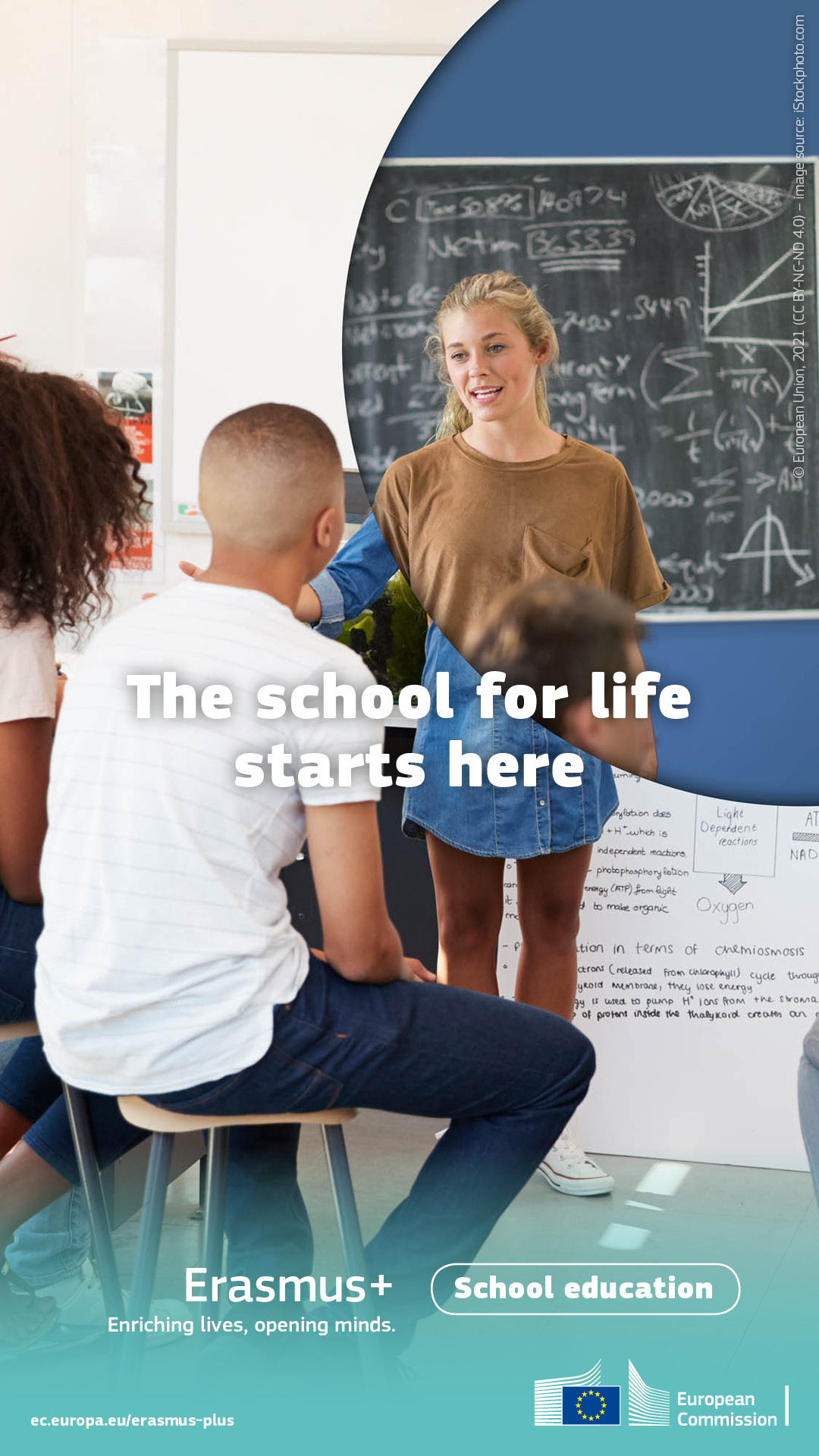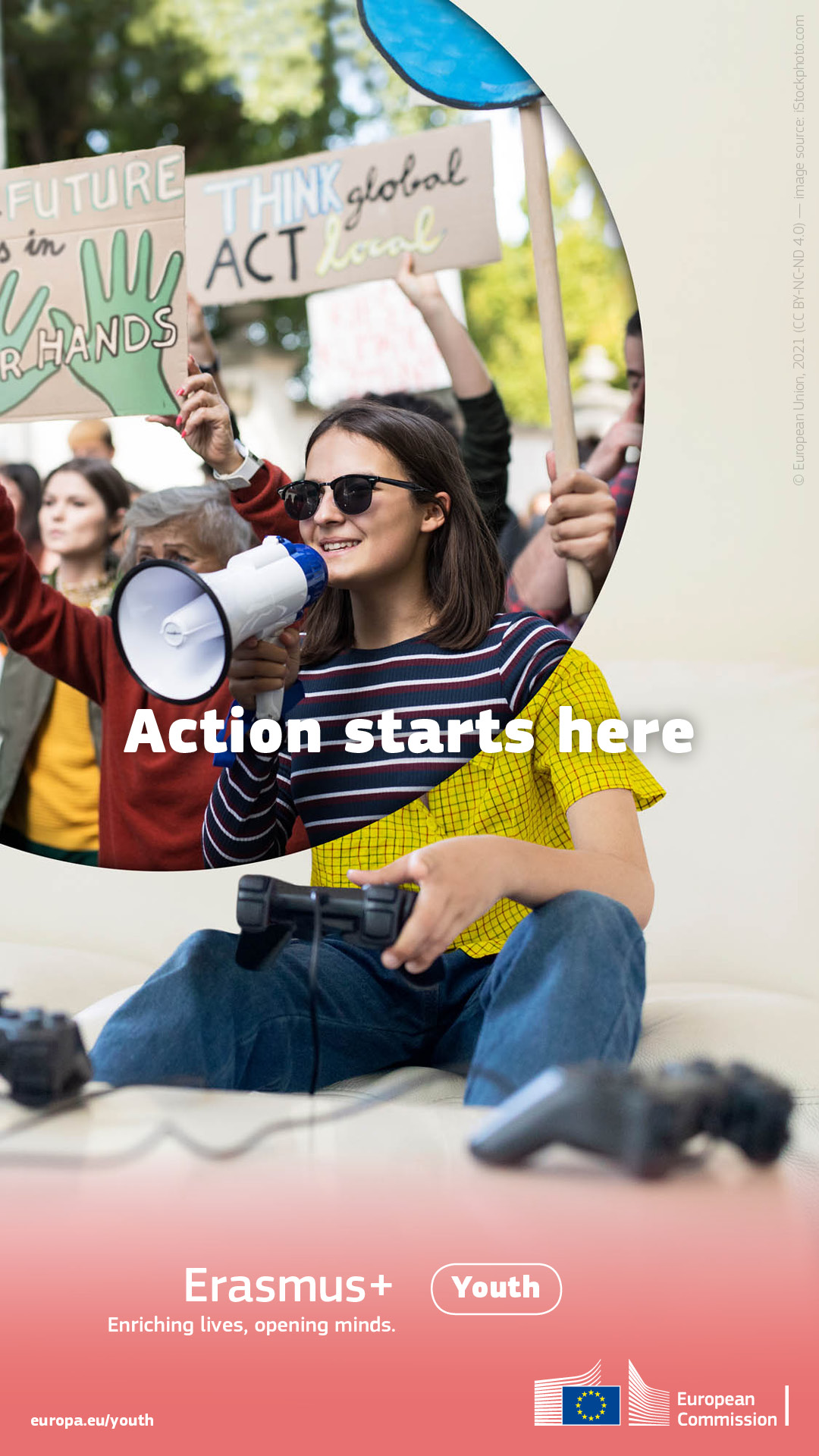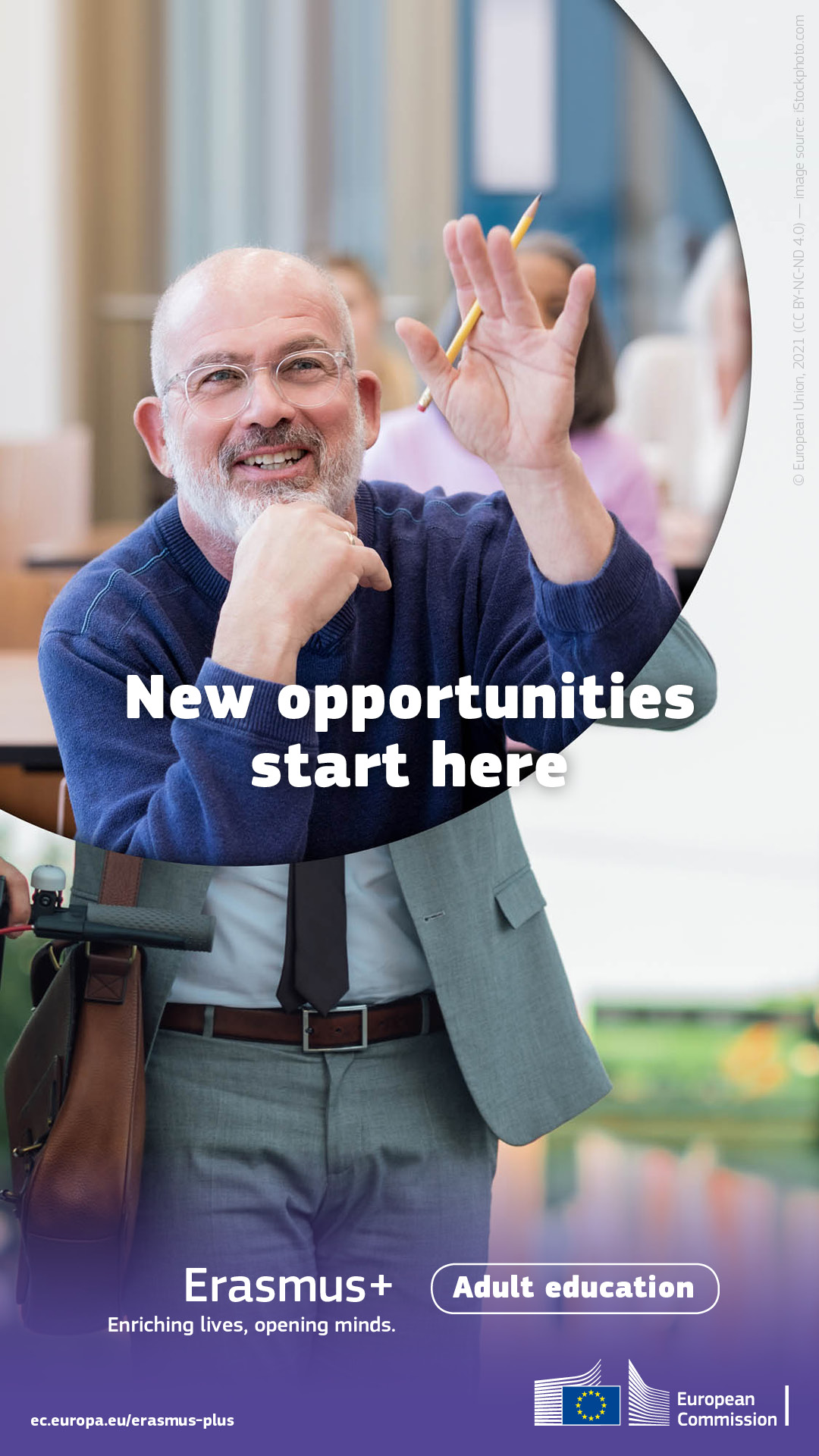KA2 PARTNERSHIPS FOR COOPERATION
The action enables the organizations to gain experience with international cooperation, strengthen their capacities, but also to produce high-quality innovative products. Depending on the project objectives, the participating organizations involved, or the expected impact, among other elements, can make the Partnerships of different sizes and scopes. The qualitative evaluation of these projects will be proportional to the goals of the cooperation and the nature of the organizations involved.
The action offers two types of partnerships:
PARTNERSHIPS FOR COOPERATION
The primary goal of partnerships is to enable organizations to increase the quality and relevance of their activities, to develop and strengthen their partner networks, to increase their capacity to work together transnationally, to strengthen the internationalization of their activities through the exchange or development of new practices and methods, as well as sharing and confronting ideas. They aim to support the development, transfer, and/or implementation of innovative practices, as well as the implementation of joint initiatives to promote cooperation, learning, and exchange of experiences at the European level. The results should be reusable, portable, scalable and, if possible, have a strong transdisciplinary dimension. The selected projects are expected to share the results of their activities at local, regional, national, and transnational levels. Cooperation partnerships are tailored to the priorities and policy frameworks of each Erasmus+ sector, both at the European and national level while aiming to create incentives for cross-sectoral and horizontal cooperation in thematic areas.
OBJECTIVES OF THE ACTION
Partnerships for Cooperation aim at:
- Increasing the quality of work, activities, and practices of the involved organizations and institutions;
- Capacity building of organizations;
- Addressing common needs and priorities in the field of education, training, youth, and sports;
- Enabling transformation and change, leading to improvements and new approaches, commensurate with the context of each organization.
SMALL-SCALE PARTNERSHIPS
Small-scale partnerships are designed to extend access to the programme for small-scale actors and individuals who are hard to reach in the areas of school education, adult education, Vocational Education and Training (VET) (VET) (VET), youth, and sports. With smaller amounts of grants awarded to organizations, shorter duration, and simpler administrative requirements compared to Partnerships, this action aims to reach less experienced organizations and new users in the Programme, reducing barriers to entry into the programme. organizations with smaller organizational capacity. This action will also support flexible formats - hybrid activities of transnational and national character, allowing organizations to have more resources to reach people with fewer opportunities. Small-scale partnerships can also contribute to the creation and development of transnational networks and to fostering synergies with and between local, regional, national, and international policies.





The aim is to support the higher education sector to become even more connected, more innovative, more inclusive, and digital. To this end, the Programme will encourage much deeper and interdisciplinary collaboration between higher education institutions, as well as their innovative ecosystems, and strengthen links between education, research, and innovation. Particular focus will be placed on strengthening inclusion, mobility, digitalization, lifelong learning, quality assurance, and automatic recognition. The main goal is to accelerate the transformation of higher education throughout Europe and to train future generations to create knowledge for a resilient, inclusive, and sustainable society.
Promoting interconnected higher education systems:
The Programme will aim to strengthen the strategic and structured cooperation between higher education institutions through:
a) support for the development and testing of various types of collaboration models, including virtual and hybrid collaboration, the use of various digital tools and online platforms;
b) improving mobility by implementing automatic mutual recognition of qualifications and learning outcomes by incorporating mobility into the curriculum;
c) support for higher education institutions to implement the Bologna Principles and tools to strengthen mobility for all.
Stimulating innovative learning and teaching practices:
To address societal challenges by supporting:
a) development of learning outcomes and student-centered curricula that better meet students' learning needs and reduce skills mismatches that are relevant to the labor market and society at large;
b) development, testing, and implementation of flexible learning pathways and modular course design (part-time, online, or hybrid) and appropriate forms of assessment, including the development of online assessment;
c) promoting the lifelong learning dimension of higher education, including by facilitating the undertaking, validation, and recognition of short-term courses leading to micro-qualifications;
d) implementation of trans-disciplinary approaches and innovative pedagogies such as inverted learning, collaborative international learning through the Internet, and research-based learning;
e) inclusion of sustainable development in all curricula for students in all disciplines and at all levels.
Development of STEM / STEAM in higher education, especially the participation of women in STEM:
This priority supports the development and implementation of STEM higher education curricula appropriate to the purpose, following the STEAM approach; promoting women's participation in STEM fields of study and especially in engineering, ICT, and advanced digital skills; developing guidance and mentoring programmes for students, especially girls and women, to pursue STEM and ICT areas of study and occupation; encouraging gender-sensitive practice and training in STEM education; elimination of gender stereotypes in STEM.
Rewarding excellence in learning, teaching, and skills development through:
a) development and implementation of strategies and quality culture for rewarding and stimulating excellence in teaching, including online teaching and teaching for disadvantaged students;
b) training academics in innovative and/or online pedagogies, including trans-disciplinary approaches, new curriculum design, delivery methods, and assessment linking education to research and innovation where relevant;
c) encouraging an entrepreneurial, open, and innovative sector for higher education 170, by promoting learning and teaching partnerships with commercial and non-commercial organizations in the private sector;
d) development of new practices in teaching design, based on educational research and creativity.
Building inclusive higher education systems:
The Programme will encourage inclusive approaches to mobility and collaborative activities such as:
a) increased access, participation, and completion of the goals of the target groups with fewer opportunities;
b) active support of participants in mobile telephony who come through the whole process of finding accommodation, including through cooperation with relevant stakeholders to provide adequate and affordable housing;
c) supporting the development of flexible career paths between education and research;
d) fostering gender balance in higher education institutions, across areas of study, and in leadership positions;
e) encouraging civic engagement by promoting non-formal learning and additional teaching activities and recognizing voluntary work and community work in students' academic performance.
Supporting the digital capabilities of the higher education sector through:
a) actions enabling the implementation of the European Student Card Initiative through the secure electronic transmission of student data between higher education institutions, in full respect of personal data protection and linking where possible with the new Europass;
b) development of digital skills and competencies of students and employees.
Dealing with learning disabilities, early school leaving, and low knowledge of basic skills:
The purpose of this priority is to help achieve success for all students, especially those with fewer opportunities. Priorities include monitoring, early identification of students at risk, preventive and early interventions for students with disabilities, promoting multiple student-centered approaches, promoting well-being and mental health for students and teachers, and protecting against bullying at school. At the school level, this priority supports holistic approaches to teaching and learning and cooperation between all actors within schools, as well as with families and other external stakeholders. Finally, at the strategic level, the focus is on improving transitions between different stages of education, improving evaluation, and developing strong quality assurance systems.
Support for teachers, school leaders, and other teaching professions:
This priority supports practitioners in the teaching professions (including teacher educators) at all stages of their careers. Projects according to this priority can focus on improving the initial education of teachers, as well as on their continuous professional development work, especially by improving the creation of policies and specific opportunities for teacher mobility. The second focus of the priority is to make teaching careers more attractive and diverse, strengthening selection, recruitment, and evaluation for teaching professions. Finally, projects can also directly support the development of stronger school leadership and innovative teaching and assessment methods.
Development of key competencies:
Projects under this priority will focus on promoting collaborative curricula, using innovative learning approaches, developing creativity, supporting teachers in delivering competency-based teaching, and developing assessment and validation of key competencies.
Promoting a comprehensive approach to language teaching and learning:
This priority includes projects that provide support for integration into the language dimension through curricula and enable students to reach appropriate language competence levels by the end of compulsory education. Incorporating the main use of new language learning technologies is also part of the effort under this priority. Finally, the priority supports projects that can help create language-aware schools that build on the increased linguistic diversity in schools, for example, fostering early learning and language awareness and further developing bilingual teaching options (especially in border regions). and areas where residents use more than one language).
Promoting interest and excellence in science, technology, engineering, and mathematics (STEM) and the STEAM approach:
This priority supports projects that promote STEM access to education through interdisciplinary teaching in cultural, environmental, economic, design, and other contexts. The priority includes the development and promotion of effective and innovative pedagogies and assessment methods. Developing partnerships between schools, businesses, higher education institutions, research institutions, and the wider society is particularly valuable in this context. At the strategic level, the priority is to promote the development of national STEM strategies.
Developing high-quality education and early childhood care systems:
This priority focuses on promoting the implementation of the EU Quality Framework for Early Childhood Education and Care. Includes projects and the provision of support for initial and continuing professional development of staff involved in organizing, conducting, and providing early childhood education and care. In addition, the priority also supports the development, testing, and implementation of strategies and practices to encourage the participation of all children in early childhood play education, including children with fewer opportunities.
Recognition of learning outcomes for participants in cross-border learning mobility:
This priority is intended to help implement the Council's recommendation on automatic mutual recognition. Supports building cross-border exchange of lessons in school curricula, building the capacity of schools to organize training abroad for their students, and creating long-term partnerships between schools in different countries. Strategically, this priority aims to strengthen the involvement of school authorities at all levels in efforts to ensure recognition and support for the development and sharing of tools and practices for the preparation, monitoring, and recognition of training abroad.
Priority will be given to actions that contribute to the main areas of the EU Youth Strategy 2019-2027: engaging, connecting, and empowering young people. Special focus will be given to strengthening cross-sectoral cooperation that enables greater synergy in different areas of activities that are important for young people, promoting youth participation, formats, and support for active citizenship of young people, especially young people at risk of social exclusion.
Specific priorities for the youth field include:
Promoting active citizenship, a sense of initiative among young people, and youth entrepreneurship, including social entrepreneurship:
The priority aims to encourage active citizenship among young people, especially through volunteering and acts of solidarity, and thus strengthen the sense of initiative of young people, especially in the social field and support of their communities. Projects under this priority can also promote entrepreneurship, creative learning, and social entrepreneurship among young people. Intercultural dialogue, knowledge, recognition of diversity, and the promotion of tolerance are key to this priority.
Increasing the quality, innovation, and recognition for youth work:
The priority aims to promote the recognition and validation of youth work and non-formal learning at all levels, to support quality development and innovation in youth work. This includes capacity building for youth workers in their online work and offline practices, as well as support for the development and sharing of methods to achieve youth marginalization to prevent racism and intolerance among young people, and the risks, opportunities, and implications of digitalization.
Enhancing the employability of young people:
The priority aims to enhance the capacities of young people and their skills. The youth sector plays an important role in facilitating the transition of young people from youth to adulthood, including supporting their integration into the labor market. Activities focused on the inclusion and employability of young people with fewer opportunities (including young people who are neither employed nor in the process of education and training), especially the emphasis on young people at risk of marginalization and those of migrant origin, are at the heart of this priority.
Reinforcing the links between policy, research, and practice:
This priority addresses the need for stronger links between youth policy, research, and practice to provide a better record of needs and to facilitate policy making. Activities to promote better knowledge of the state of youth and youth policies in Europe and beyond will be relevant to this priority.
Adaptation of Vocational Education and Training (VET) to the needs of the labor market:
This includes supporting and developing Vocational Education and Training (VET) Programmes that offer a balanced combination of professional skills and create job learning and opportunities that are well-suited to all economic cycles, job development, working methods, and key competencies. This priority also encourages the development of curricula and programmes for Vocational Education and Training (VET) Programme offers and qualifications that are regularly updated. The projects will support Vocational Education and Training (VET) providers in adapting their training offer to change skills needs, green and digital transitions, and economic cycles.
Increasing the flexibility of opportunities in Vocational Education and Training (VET):
This priority supports initiatives that develop flexible Vocational Education and Training (VET) Programmes focused on students that contribute to closing existing gaps in access to working-age adult education for successfully managing labor market transitions. Projects under this priority also contribute to the development of designed continuing vocational training programmes and are adapted to the labor market, as well as programmes that facilitate the transfer, recognition, and accumulation of learning outcomes leading to national qualifications.
Contributing to innovation in Vocational Education and Training (VET):
This priority supports projects in which the essential goal is to change the way Vocational Education and Training (VET) is practiced, making it more relevant to the current and future needs of the economy and society. These changes can be organizational (planning, financing, human, resource management, monitoring, and communication). They can also relate to teaching and learning processes through the development and implementation of new and more relevant teaching, learning and approaches. These changes may relate to the ecosystem of VET providers and the way they engage with partners, for example through the diffusion of technology and applied research, advocacy, networking, and internationalization of activities. They can also focus on developing and providing products and services for Vocational Education and Training (VET) (ex. Skills Development, Applied Research, and Consulting) to external factors such as students, companies, and governments.
Increasing the attractiveness of Vocational Education and Training (VET):
Priority will be given to projects that contribute to increasing the attractiveness of Vocational Education and Training (VET) at various levels. Examples of these can be projects that work towards greater permeability between different educational levels, foster open and participatory learning environments, support the professional development of teachers and trainers in Vocational Education and Training (VET), and facilitate the recognition of learning and outcomes of use. of Europass and other digital services. This priority also supports projects that develop long-term partnerships to establish or strengthen international, national, regional, and sectoral skills and competitions. The impact of these activities can be optimized by working closely with businesses, Vocational Education and Training (VET) providers, chambers of commerce, and other relevant stakeholders at different stages of the project cycle.
Improving the quality guarantee in Vocational Education and Training (VET):
This priority focuses on measuring and improving the quality of Vocational Education and Training (VET) by developing national quality assurance systems for both primary and continuing Vocational Education and Training (VET), in all learning environments and all learning formats, provided by public and private providers. This includes setting up and testing postgraduate monitoring arrangements by the Graduate Monitoring Recommendation Council and the European Quality Assurance Recommendation Vocational Education and Training (VET) Reference Framework (EQAVET).
Creation and implementation of internationalization strategies for Vocational Education and Training (VET) providers:
This priority aims to establish support mechanisms and contractual frameworks for promoting quality mobility of Vocational Education and Training (VET) staff and students. Particularly important aspects include the automatic mutual recognition of qualifications and learning as well as the development of student mobility support services. Such services may include informing, motivating, preparing, and facilitating the social integration of Vocational Education and Training (VET) students in the host country, as well as improving their intercultural awareness and active citizenship.
Improving the availability of high-quality adult learning opportunities:
This priority provides support for the creation and development of flexible learning offerings tailored to adult learning needs, for example by developing digital and hybrid learning opportunities. Priority is also given to projects that work on the validation of skills acquired through non-formal and informal learning.
Creating pathways for improvement, improving accessibility, and increasing the take-up of adult education:
This priority aims to promote new opportunities for adult education, especially for adults with low levels of skills, knowledge, and competencies. Creating new pathways for improvement should enable adult learners to improve their key competencies and advance to higher qualifications. Additional work covered by this priority includes developing guidelines to ensure that adults have access to appropriate lifelong learning, improving skills identification and screening, designing adapted learning offerings, and developing effective outreach activities, guidelines, and strategies for motivation.
Improving the competencies of educators and other adult education staff:
Priority is given to projects that develop staff competencies that lead to overall improvements in the provision, targeting, and effectiveness of adult education. This includes assessing the prior knowledge and skills of adult learners, better and more innovative teaching methods, as well as strengthening the supportive role that adult education plays in the process of motivating, guiding, and advising students in challenging learning situations.
Improving the skills of educators working in the field of adult education:
This priority supports the development of better-quality assurance mechanisms for learning policies. Additionally, this includes the development and transfer of monitoring methodologies to measure the effectiveness of adult education and to monitor the progress of adult learners.
Develop forward-looking learning centers:
This priority aims to support local learning environments, promote social inclusion, civic engagement, and democracy, and attract and offer all in the community lifelong learning and opportunities through the use of digital technologies. Projects could encourage local learning centers, libraries, civil society, and the wider community (citizens' associations, local authorities, health, culture, etc.) to work together to motivate and enable adults of all ages to learn the life skills and key competencies that are necessary to be resilient and adaptable to change and uncertainty.
Promoting Erasmus+ to all citizens and generations:
Priority will be given to projects that create and promote opportunities for education and exchange of experiences with the elderly to build and strengthen European identity.
